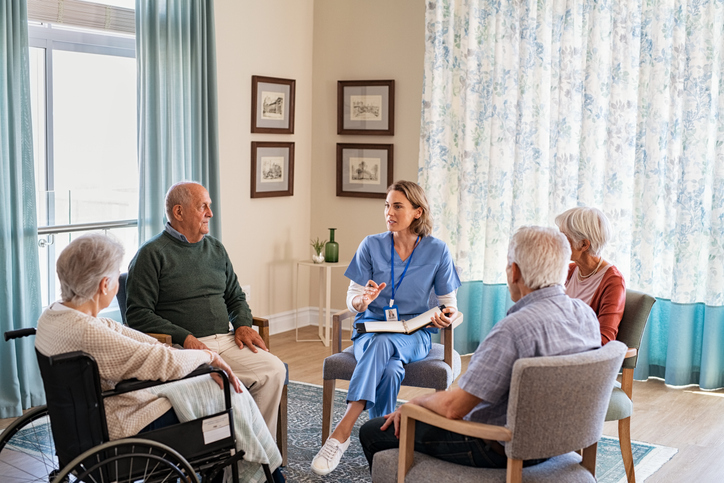In social care, the needs are urgent, complex, and growing. No single organisation can meet them all, and certainly not on its own. Yet too often, we are asked to operate in a competitive landscape. To bid against each other for funding. To guard our knowledge.
At Bridge Support, we take a different view. We believe that working together leads to better outcomes. That collaboration, not competition, should shape the future of mental health and social care, and when organisations share ideas, people benefit. Here, we reflect on what collaboration means in practice, from joint ventures and strategic alliances to the day-to-day act of sharing knowledge, space, and trust. When we centre communities instead of contracts, we start building systems that work better for everyone.
Why Collaboration Matters Now
Mental health services are under pressure. Budgets are stretched, staffing is tight, demand is rising, and people are falling through the gaps.
Many of the people we support at Bridge face multiple barriers at once. They may be dealing with mental illness, housing instability, addiction, poverty, and trauma. No single agency, whether statutory or voluntary, can address all of this alone.
Collaboration allows us to pool resources. To bring together different kinds of expertise and to create support that feels joined-up, not fragmented. It also helps us act quickly. When partnerships are already in place, we don’t need to build relationships from scratch when a crisis hits. We can coordinate, refer, and problem-solve in real time. More than anything, collaboration helps us focus on what matters: the person in front of us, not the boundaries of our own organisation.
Joint Ventures with Shared Values
One way we’ve put this into practice is through joint ventures. We’ve developed collaborative partnerships with other service providers who share our values and approach. These partnerships are not just about convenience. They’re about co-designing services that neither of us could deliver alone.
Joint ventures work best when they are built on mutual respect and trust. Each partner brings something to the table: lived experience, clinical expertise, housing solutions, and trauma-informed care, for example. Together, we build models that are more comprehensive, more flexible, and more human.
We’ve found that this kind of deep collaboration improves not only outcomes for the people we support, but also staff experience. Teams feel more connected, knowledge is shared, and problems are solved collectively. These partnerships take time to build. They require open communication and a shared commitment to quality. But when done well, they are a powerful tool for systemic change.
Resource Sharing in Action
Sometimes collaboration looks big and strategic. Other times, it’s simple and practical. We regularly share resources with partner organisations. That could be access to a space for group work. It could be staff training sessions opened up across agencies. It might be joint recruitment processes or shared access to data tools.
These actions may seem small, but they make a difference. They save money, they reduce duplication, and they build a culture where organisations support each other, rather than compete for recognition.
We also believe in sharing learning. If we’ve developed a successful approach, say, around peer support, trauma-informed environments, or safeguarding, we’re happy to share the details. Not because it benefits us directly, but because it moves the sector forward.
Building Strategic Alliances
In a complex system, influence matters. That’s why we’ve invested time in building strategic alliances with commissioners, housing associations, NHS providers, and other charities. These relationships help us advocate for better funding models, more integrated pathways, and smarter commissioning. They also give us a seat at the table when decisions are made.
But strategic alliances are about alignment, not power. When we work with partners who share our commitment to recovery, co-production, and person-centred care, we’re able to design systems that reflect those values. It’s not always easy. Systems can be slow to change, but collaboration gives us a stronger voice—and that voice helps shape the future of care.
Moving Beyond the Competitive Model
The traditional funding environment often encourages competition. Charities are asked to outbid each other, to keep innovations to themselves and to operate as if working together is a risk. We reject that logic.
We believe that the challenges facing mental health and social care are too big, too complex, and too urgent to solve through competition alone. Collaboration doesn’t mean giving up your identity or diluting your mission. It means recognising that the real goal is not organisational growth, but community wellbeing. That means being open and generous, and willing to step into spaces where credit is shared and decisions are made together.
Leadership That Supports Collaboration
Collaboration requires leadership that is proactive, humble, and consistent. At Bridge Support, we’ve tried to create a culture that supports partnership, both internally and externally. We encourage our staff to build relationships across services. We invest time in joint working groups. We make sure collaboration is written into our strategies, not treated as an extra.
We also model it from the top. Our leadership team actively meets with partners, shares insights, and looks for opportunities to join forces. Not for publicity, but because it works.
A Better Way Forward
We will continue to work alongside others, sharing knowledge, building partnerships, and keeping our focus on what matters most: recovery, connection, and hope.
We know we’re not the only ones doing good work, and we don’t want to be because when good organisations come together, better care becomes possible.
If you’re interested in exploring partnership opportunities, sharing ideas, or simply learning more about our approach, we’d love to hear from you. You can get in touch here.

